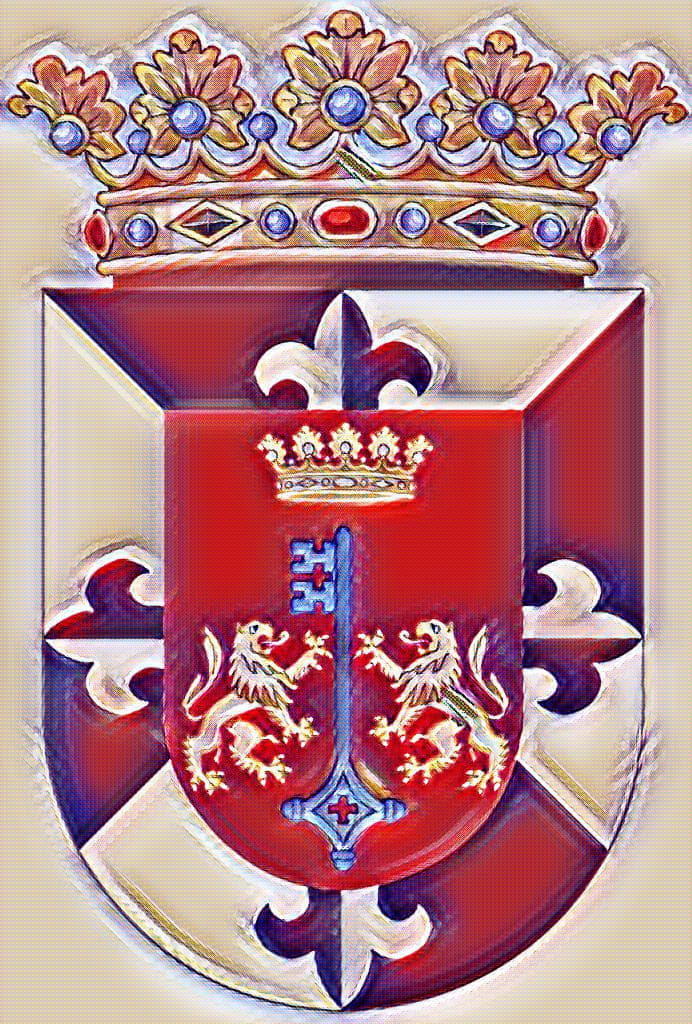During the 2003 Iraq war debates preceding an intervention with no authorizing UNSC resolution, NATO-less, and without a congressional declaration of war—The Bush administration got the chance to outline its vision of America’s place in the international order: Washington would act as the world’s police, and wherever necessary would hand out “Deputy badges” to the relevant countries in the variable geometry of coalitions of the willing.
Important parts of the international sanctions regimes go through such deputies—UNSC resolution S/RES/2653 on the Haitian Question lays down asset freezes on anyone aiding the trade in human beings, weapons, organs, etc. Were it not for the recent breakdown in US-Dominican Republic ties one might think Santo Domingo had been deputized to run after smugglers, traffickers and war criminals—especially given the amount of Haitian elites currently living on this side of the border, banking with Dominican banks and doing business through Dominican institutions.
No city except Miami is such a target-rich environment—except maybe wherever Hillary Clinton is living these days given her well documented links with individuals now sanctioned. Santo Domingo’s close coordination with Washington had so far been one of the Biden Administration’s few bright spots in the region, which makes it all the more shameful that their commitment to woke neo-marxian critical race theory would get in the way of good relations with a friendly neighbour.
UNSC resolution 2653 names only Jimmy Chérizier (AKA BBQ) although the most recent additions to the sanctions list (courtesy of Canada) are two former Prime Ministers and former President Michel Martelly. Meanwhile, Santo Domingo maintains its traditional line that “there can never be a Dominican solution to the Haitian question”—a position backed by all major and minor political parties, as well as every government in the modern (post-1963) democratic era of the Dominican Republic. Washington would do well to measure its words more carefully—maligning the current policy as racist, as undersecretary for Western Hemisphere Brian Nichols recently did, sacrifices some of their best pieces on the board, including Globalist former President Fernandez, who has not defected from the local consensus and tweets black lives matter material on a consistent basis.
The USA might really have good intentions, but the truth is the OAS has too many uninvolved actors with no agenda other than to oppose US interests for it to ever catch a win—and the UN has even more such countries, some permanent members of the UNSC. Sanctions don’t patrol city streets, and there is one main conclusion to draw from the UNSC’s failure to mobilize a pacification force to put down the gangs that currently prey on the civilian population of Haiti—with the latent threat that instability might spill over the border.
As usual, the UN has proven useless in resolving this issue of peace and security. The OAS has also sessioned various times with Haiti on the agenda and is at an equal loss for solutions. Globalism fails the test of utilitarian efficacy, at the very least.
Fittingly for Haiti, it is the African continent which provides us with the relevant localist solution: ECOWAS, a purely economic steering group for a sub-region of the African continent, was able to mobilize a military intervention in the Gambia to enforce democratic norms—a lower threshold of the Responsibility To Protect (R2P) than the horrors of Port-au-Prince these days. In particular, Nigeria led Operation Restore Democracy (codename: ECOMIG) uniting the region behind the enforcement of national law, the only real sovereign—even when enforced by other countries.
Who in the Caribbean can fill Nigeria’s shoes? Which is the ECOWAS which can step up to the localist plate and arrange the niceties? The Caribbean Community (CARICOM) has the distinct advantage of having excluded the Dominican Republic from membership and therefore serves as an irreplaceable vehicle through which to underline Santo Domingo’s traditional non-interventionist stance across the border—Colin Powell said it best: you break it; you buy it; and not buying Haiti is Santo Domingo’s number one foreign policy goal.
The Bahamas, which has already offered its own troops for the operation, has so far been ignored while the major powers make everyone else hurry up and wait for them to do nothing.
One would rather not be proved right when one criticizes the international system in such harsh terms. In the case of Haiti, however, the case against globalism is at its strongest. A weak state may be a blessing or a curse, depending on your ideology—but rarely has modernity seen governance so bad as that provided by a strong NGO sector in power. Lacking the most basic police powers, NGOs can’t even provide evidence for the sanctions regime to expand.
It falls on our favourite deputy to apply the law enforcement powers to criminologically document the evidence behind claims put forward. Howdy partners, looks like this forever war is just beginning.
Felipe Cuello is Professor of Public Policy at the Pontifical university in Santo Domingo. He currently holds an administrative management position in the upper house of the national legislature of the Dominican Republic and remains an operative of the Republican Party in the United States, where he served in both the Trump campaigns as well as the transition team of 2016/17 in a substantive foreign policy role. His past service includes the United Nations’ internal think tank, the International Maritime Organization, The European Union’s development-aid arm, and the office of a Brexiteer Member of the European Parliament previous to the UK’s withdrawal from the EU. He is also the co-author and voice of the audiobook of Trump’s World: Geo Deus released in January 2020, back when discussing substance and principles were the order of the day.
